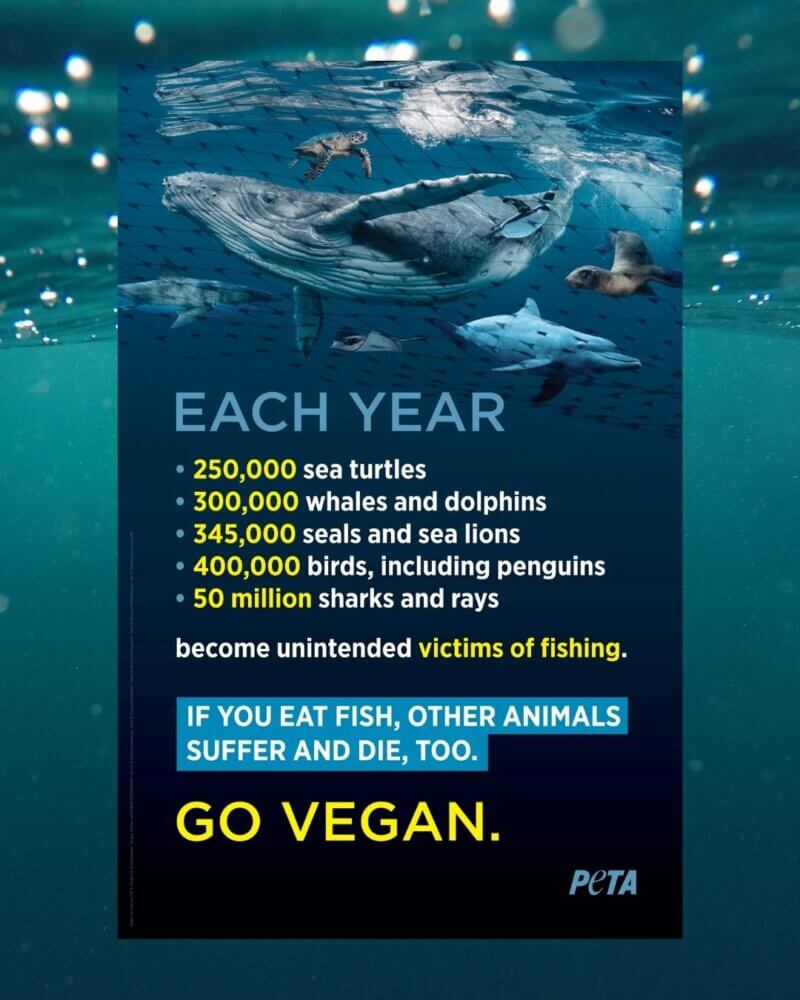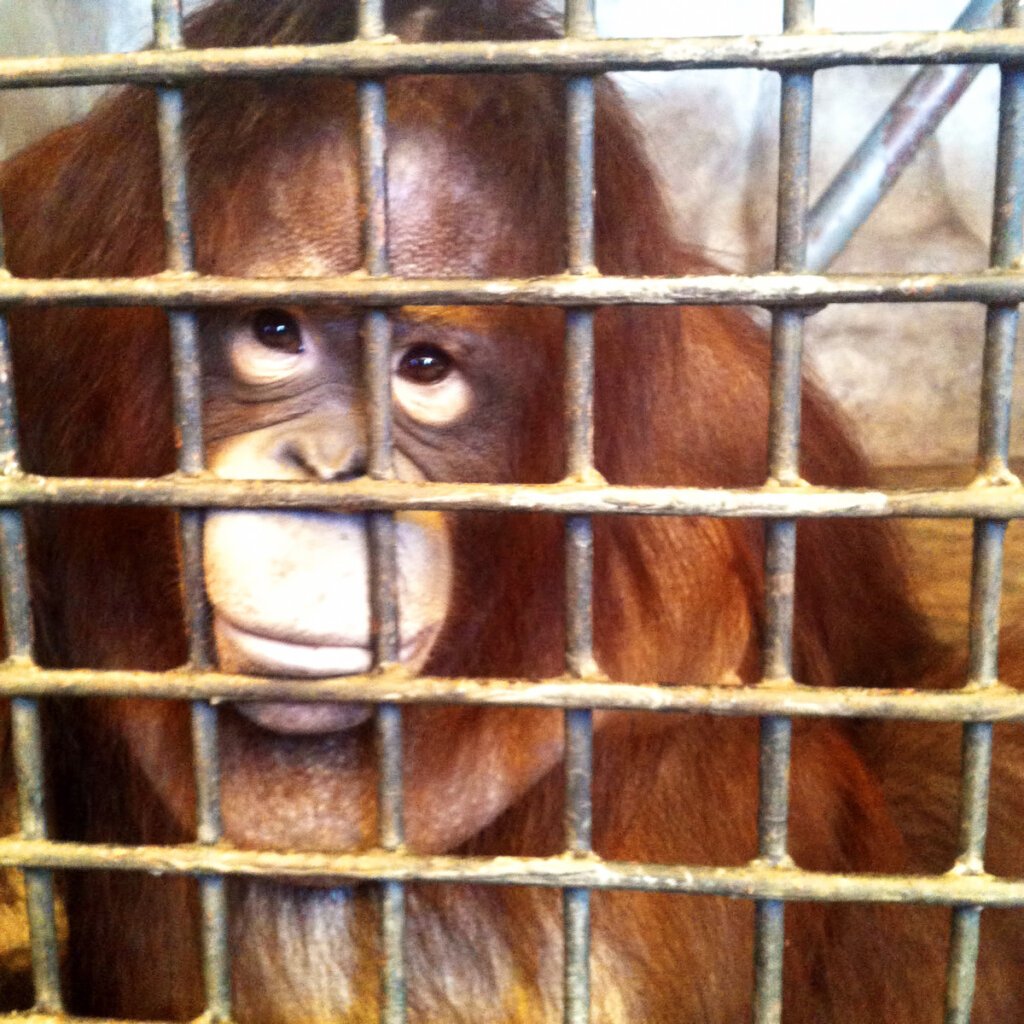NZ Plastics Ban Ignores the Ocean’s Most Harmful Litter
New Zealand’s ban on plastic straws, produce bags, and cutlery comes into force on 1 July. While personal plastics are detrimental to the environment and sea animals’ lives, abandoned fishing gear might actually be the most harmful form of marine debris and one of the biggest threats to marine life. PETA is calling on the chief executive of New Zealand’s Ministry for the Environment to make a bigger impact by going vegan.
Reports show that between at least half a million and 1 million tonnes of abandoned fishing gear end up in the ocean every year, and a shocking 46% of the Great Pacific Garbage Patch – which is 1.6 million square kilometres in size – consists of discarded fishing nets.
More than 1 trillion fish and other sea animals die at the hands of humans each year, and although they may not always express suffering in ways we can easily recognise, research confirms that fish are sensitive individuals who feel pain, form complex relationships, and have good memories. Experts agree that fish possess cognitive abilities comparable to those of dogs and some primates, yet they are cruelly yanked from their homes – gasping for breath – and bludgeoned or left to suffocate before they’re beheaded and gutted.
Our letter to the chief executive also points out that other animals suffer because of humans’ appetite for fish flesh. More than 300,000 whales and dolphins and approximately 50 million sharks as well as turtles and seabirds are killed each year as “bycatch”.

Fishing trawlers release as much carbon dioxide – 1 gigaton annually – as the entire aviation industry. As huge trawler nets sweep the ocean floors clean, they also damage delicate coral forests, causing erosion and impeding the ocean’s capacity to sequester carbon.
New Zealand relies heavily on its “clean and green” reputation for tourism, but using animals for food is taking its toll on the local environment. Waste from the nation’s 25 million sheep and 4 million cows used for food emits large amounts of methane, while the dairy industry’s use of synthetic nitrogen is ruining once-sparkling waterways. Conversely, if all New Zealand adults ate vegan and eliminated food waste, estimated diet-related emissions would be cut by 42%.
Help Animals in 2025: Renew Your PETA Membership!




